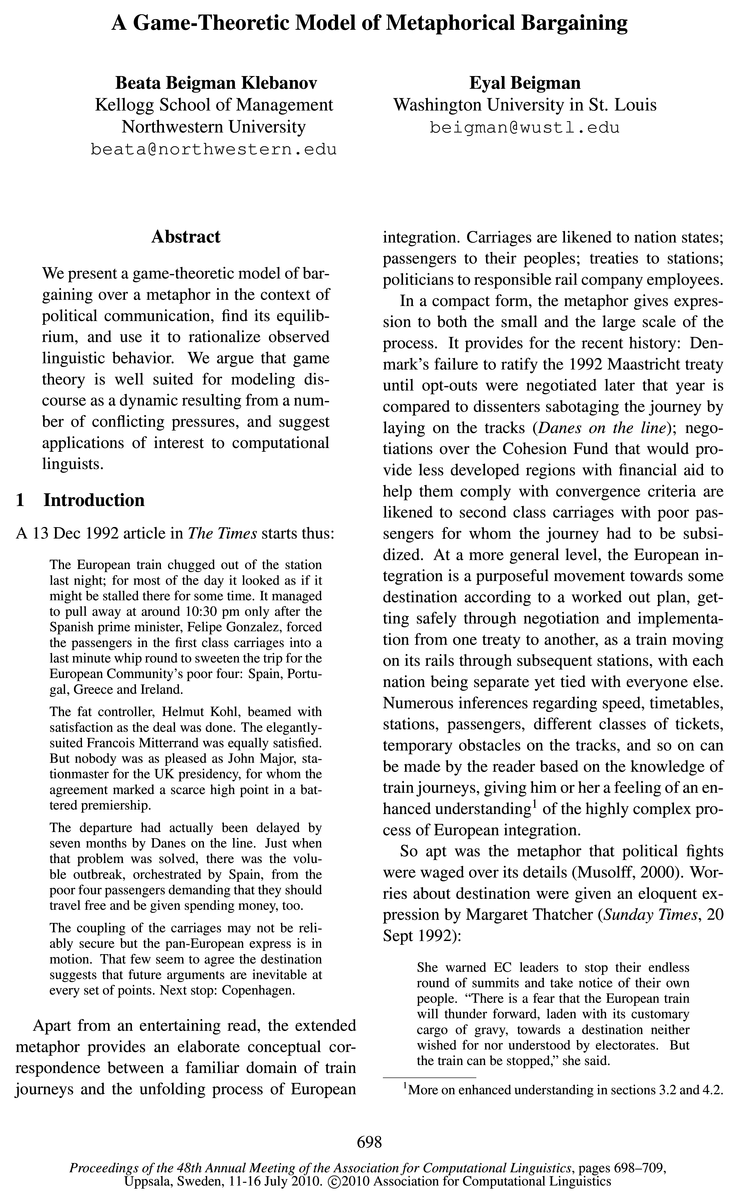Article Structure
Abstract
We present a game-theoretic model of bargaining over a metaphor in the context of political communication, find its equilibrium, and use it to rationalize observed linguistic behavior.
Introduction
A 13 Dec 1992 article in The Times starts thus:
Game-Theoretic models
The basic construct is that of a game, that is, a model of participants in an interaction (called “players”), their goals (or “utilities”) and allowable moves.
The model
We extend Rubinstein (1982) model of negotiation through offers and counter-offers between two players with a public benefit constraint.
Discussion
4.1 Political communication
Empirical challenges
We suggested that models of dynamics such as the one presented in this article be built over data where entities of interest are clearly identified.
Conclusion
This article addressed a specific communicative setting (rival politicians trying to “sell” to the public their versions of the unfolding realities and necessary policies) and a specific linguistic tool (an extended metaphor), showing that the particular use made of metaphor in such setting can be rationalized based on the characteristics of the setting.

